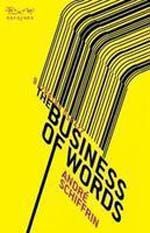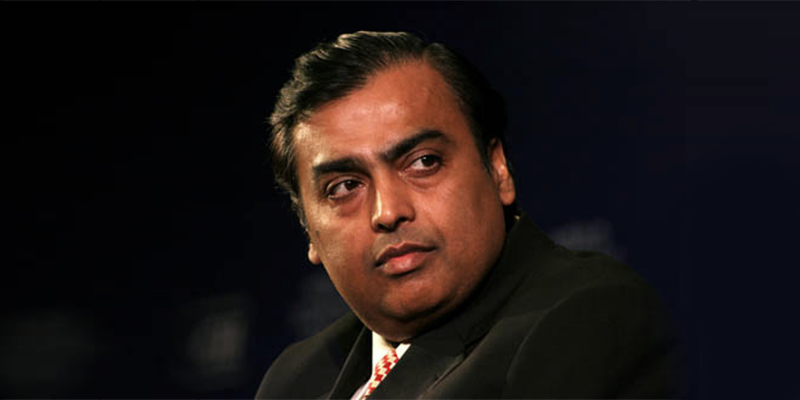An engrossing account of publishing by a daring publisher-entrepreneur

For a mundane copyeditor like me in publishing outsourcing industry for 14 years, André Schiffrin’s Business of Words is like wisdom transferred to progeny from a gutsy insider who did not get swept away by the sweeping changes in publishing that he witnessed over the years. Schiffrin instead found a way out of the situation by bringing in a new business model that is an inspiration to independent publishers across the world. That this book Business of Words is a combined volume for Business of Books (published in 2001) and Words & Money (published in 2010) in its Indian edition brought out by Navayana, an independent publisher giving voice to the marginalized, is one of the thirty publications appearing in different countries in the world holds testimony to the author’s indispensable presence in publishing world in which he is leaving his indelible mark after decorating it for 50 years.The full import of Schiffrin’s pioneering efforts in founding Free Press as a non-profit business to preserve the freedom of the press from overambitious corporate entities bent on increasing only the economics of the business and laying by wayside the real objective of publishing in bringing out diverse points of view in-depth cannot be appreciated without the backdrop of changes taking place globally. Herein lies an act of daring of a publishing veteran standing up as an entrepreneur and learning what it entails to run the publishing business on his own terms.
André Schiffrin’s father Jacques Schiffrin, born in Russia, moved to France, where he started as publisher and translator of his own publishing house Editions de La Pléiade. After German occupation of France during the Second World War, Jacques, being a Jew, was forced to flee. He travelled to the United States and joined Pantheon Books founded in New York in 1942 by Kurt Wolff. Many immigrants had started publishing in the US and left their mark in that period. Jacques died in 1950 when André was fifteen. In 1959, André joined New American Library and in 1961 Random House purchased Pantheon Books for less than $1 million. The same year, André was invited by new owners of Pantheon Books to join them. At twenty-six, with publishing absorbed during growing up, André entered a tumultuous phase of his life, what you call baptism by fire into publishing. André landed in challenging situations after a few changes at Random was named managing director of Pantheon Books within a year of his joining it. At the helm, he was to institute an intellectual culture that reverberates even today for its fascinating depth and number of copies taking an obscure place. “Above all we were looking for new works that brought the kind of intellectual excitement that American life in the 1950s was lacking,” comments Schiffrin in perhaps the first hint of a stifle in America during McCarthy years that prompted Schiffrin to move to Europe to look for diversity and open minded views.
Despite being part of a big corporation Random House, Pantheon Books remained fiercely independent under Schiffrin and he built an incredible back-list and a vibrant team of editors. A firm believer in bringing several voices to the debate, Schiffrin concentrated on authors who would breathe fresh air into politics and culture and later diversified into many interesting titles in economics and psychology. There is an interesting twist here in the history of publishing. Allen Lane, founder of Penguin Books, was getting older and in 1970, he sold Penguin to Pearson, one of the major British conglomerates. He was persuaded by some of his editors to make Penguin a public trust when on his deathbed, on which Schriffin says, “Had Lane agreed to this proposal, the future of British publishing might have been very different. Penguin would have continued to set high standards for paperback publishing and, by being able to buy books from other publishers, would have encouraged the rest of the trade to do the same.”
But as Schiffrin later says, Penguin was lucky to pursue its own course, but Pantheon Books was hit by the ugly face of American capitalism. Through the years, publishing changed from enlisting titles for its content to glamorous advances to “celebrity” authors. Then profitability was the focus as increasingly corporates who had interests in communications and media took over publishing, for example, Rupert Murdoch taking over HarperCollins. Random House in the meanwhile underwent another change of hands. S.I. Newhouse, the new owner who was running newspapers his father had founded, ostentatiously announced no change of course but eventually that promise was broken. After a fascinating journey, in 1990, Schiffrin encountered Albert Vitale, who succeeded Bob Bernstein, his rock solid support at Random. Vitale was instrumental in setting unreal targets for Pantheon and bringing in profit-per-book and such distasteful practices that left Schiffrin unable to hold on to his beliefs of back-list feeding unprofitable acquisitions and some titles taking time to become best-sellers. By sad turn of events, Schiffrin quit Pantheon Books in 1990, the publishing house he nourished and saw it grow from strength to strength, along with his team of editors. Random House seemed to have followed some dubious accounting practices that never gave Pantheon Books its due. Surprisingly, Pantheon Books remained profitable despite cries of profitability enveloping the publishing business of the 1980s, a fallout of Reagan/Thatcher economic policies of that period. He reminisces, “Newhouse and Vitale had achieved the remarkable result of lowering the intellectual value of the firm, cheapening its reputation, and losing money, all at the same time.” Bertelsmann, the German firm, eventually bought Random House in 1998, to the rude shock of publishing industry.
Faced with many options and offers, perhaps, Schiffrin took a daring decision here in 1990 that showed the character of the man to preserve the careers of many young editors who resigned from Random House with him. With the strongest possible distaste for profit that publishing industry was bent upon, he chose to go the non-profit route in founding Free Press, which was eventually taken over by Simon & Schuster in 2001. What is fascinating is the make-over of Schiffrin from an editor looking for manuscripts from authors of all hues to shifting from boardrooms to boardrooms making presentations of his ideas to foundations run by businessmen. He did find that money and took off. Free Press built on Schriffrin’s tradition of not looking only for best-sellers but also books for its intellectual depth that didn’t sell well. Looking back, it is doubtful how many would have taken the gamble that André Schiffrin took to follow his conviction rather than join yet another big publisher with a glamorous title and its attendant benefits. If American entrepreneurism is defined by likes of Steve Jobs, Bill Gates, and Mark Zuckerberg, who made millions through technology at times not employing straightforward business practices, André Schiffrin stands out as an entrepreneur who treaded a path less travelled, inspiring perhaps an army of independent publishers around the world through his intellect and intelligence and not following dubious practices that characterized the industry as a whole. Like a pearl in the depth of oceans.
This review is biased in favour of Schiffrin’s personal journey that will inspire entrepreneurs but the book weaves the history of publishing in Schiffirin’s voice and in the latter part of the book Schiffrin discusses the issues of the publishing industry in depth and draws parallels with Norwegian and French experiences. He advocates radical measures to preserve the falling standards and his account gives an overall picture of the publishing industry, of which bookstores is an important component.
The book is unputdownable for those in publishing and for others, it is an inspiring story of a publishing veteran who wrote new rules of the game.
André Schiffrin, Business of Words, Indian edition, Navayana Publishing, 2011, 296 pp. with index, Rs. 295. Distributed in South India by IPD Alternatives, ph: 91-11-26492040. Also available from Navayana, ph: 91-11-26494795.
Flipkart link to purchase online.
–Venkatesh Krishnamoorthy, curator of Books Reviews on YourStory and chief evangelist











